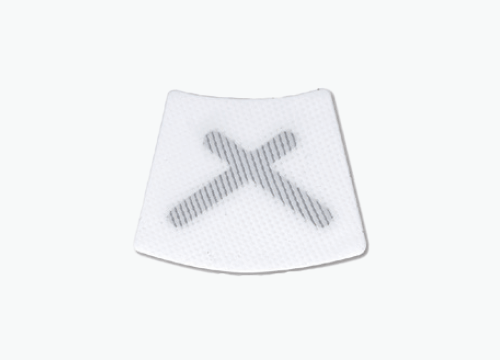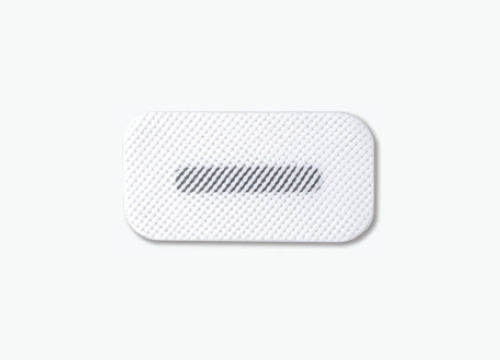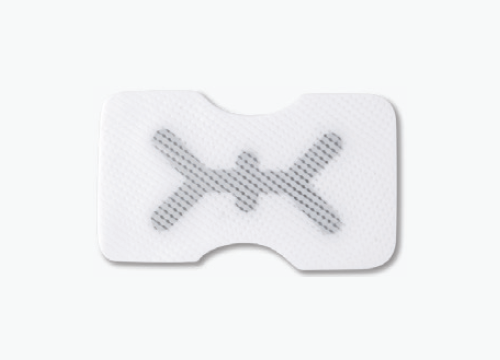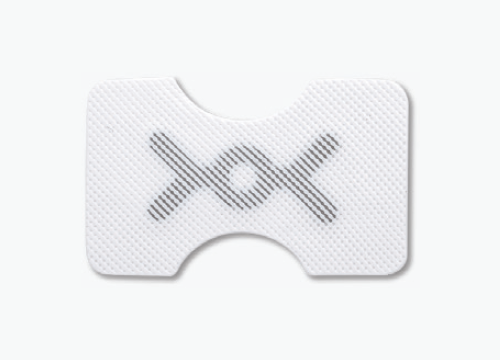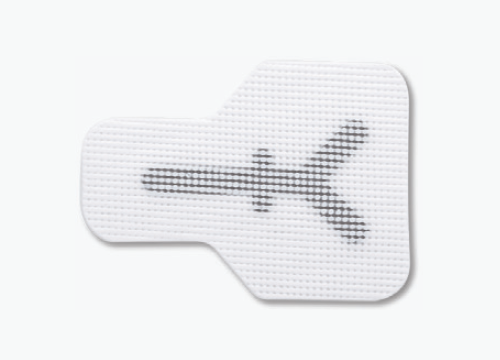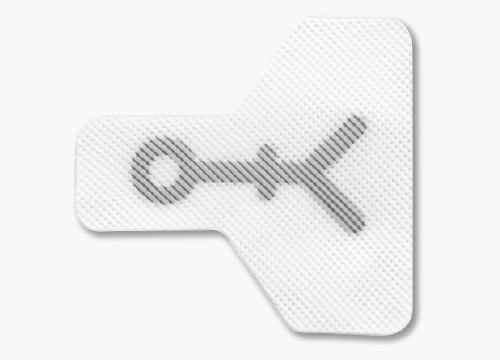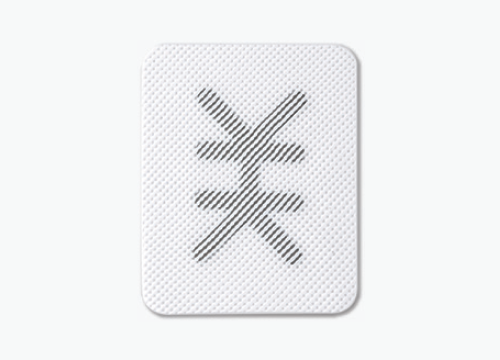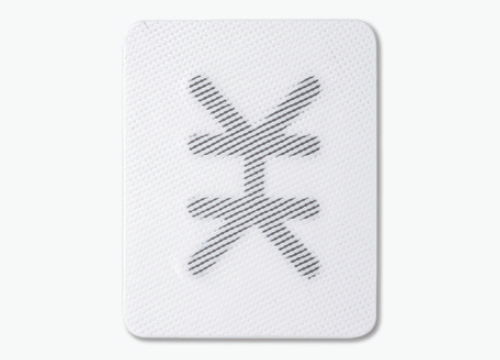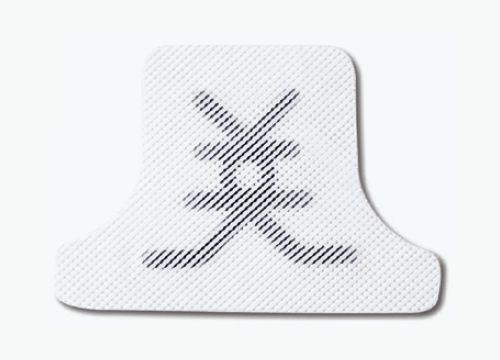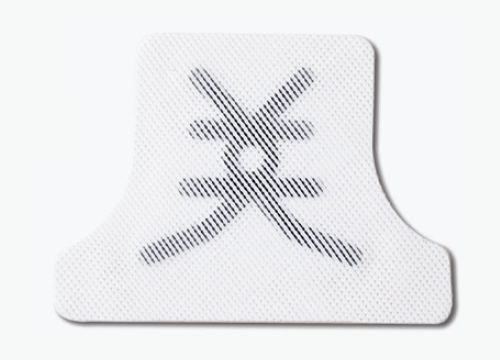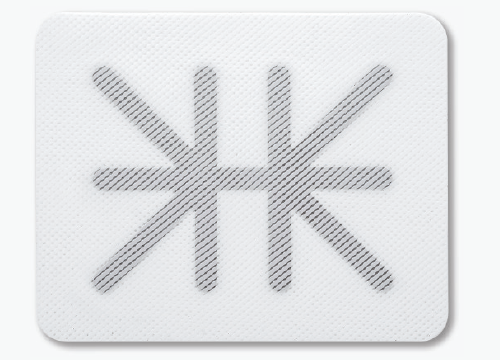1
/
of
12
Unicare Biomedical CYTOFLEX® TI-ENFORCED PTFE Membrane
UNI-C05-0101Unicare Biomedical CYTOFLEX® TI-ENFORCED PTFE Membrane
Regular price
$109.99
Sale price
$109.99
Regular price
Unit price
/
per
Shipping calculated at checkout.
5 In stock
Description
The membranes are designed to block bacteria penetration, and impede the migration and establishment of gingival tissue derived cells into bony defects. This provides a more favorable environment for neovascularization and for bone derived cells to repopulate and repair the defect. The Ti-Enforced® membranes are textured on both surfaces to improve handling and adhesion between tissue and membrane.
Ti-Enforced® ePTFE membranes are provided double pouched and sterile.
TI-Enforced® Product Flyer (PDF File)
FAQ
-
- What is Ti-Enforced® membrane made of?Ti-Enforced® membrane is composed of a titanium frame enclosed within two layers of expanded polytetrafluoroethylene (ePTFE) material. It is a passive, non-load bearing membrane.
-
- What is the purpose of enclosing a titanium frame within an ePTFE membrane?The titanium reinforcement is intended for space and shape maintenance to contain bone grafting material and to minimize graft migration during wound healing. Ti-Enforced® membranes are designed to reduce the migration and establishment of gingival tissue derived cells into bony defects thus providing a more favorable environment for neovascularization and bone derived cells to repopulate and repair the defect.
-
- What is the enclosed titanium frame made of?The titanium frame is made of pure, implantable grade titanium.
-
- What are the indications of Ti-Enforced® membrane?Ti-Enforced® membrane is cleared for use as a space-making barrier in the treatment of periodontal defects and augmentation of alveolar ridge in accordance with guided tissue regeneration principle. It is a temporarily, non-resorbable, implantable material.
-
- How long is Ti-Enforced® membrane implanted for?The membrane is intended to be submerged and implanted for more than 30 days and up to 6 months.
-
- Are Ti-Enforced® membranes textured on both sides?All Ti-Enforced® membranes have micro and macro texture on both surfaces.
-
- What are the Advantages of Texturing on Both Surfaces?By having both surfaces of Ti-Enforced® textured, doctors do not have to be concerned about which side should face up toward the gingival tissue or face down toward the bone graft material. This makes it easier for doctors to use the membrane.
The unique strawberry field texture pattern provides more surface area for the gingival tissue to adhere to the membrane, and to stabilize the wound site. The texture surface facing the bone graft material prevents the membrane from sliding around the graft material, making it easier to position the membrane over the graft material.
- What are the Advantages of Texturing on Both Surfaces?By having both surfaces of Ti-Enforced® textured, doctors do not have to be concerned about which side should face up toward the gingival tissue or face down toward the bone graft material. This makes it easier for doctors to use the membrane.
-
- May Ti-Enforced® be trimmed and shaped to fit a variety of defect sizes?The membrane may be cut to the desired configuration with scissors. After trimming, there should be no sharp corners or rough edges. To enhance stability and adequate protection of the space over the bony defect, the membrane should be trimmed to extend 3mm beyond the defect margins and to remain at least 1mm from adjacent, uninvolved teeth. The membrane may be curved to create a dome shape, if desired, for containing the graft.
CAUTION: Excessive bending of the titanium frame or trimming of the membrane close to the titanium frame may cause the membrane to delaminate. If the membrane delaminates or if the titanium frame perforates through the ePTFE material, it should not be used. The membrane should be handled using only powder free gloves and/or with sterile atraumatic forceps.
- May Ti-Enforced® be trimmed and shaped to fit a variety of defect sizes?The membrane may be cut to the desired configuration with scissors. After trimming, there should be no sharp corners or rough edges. To enhance stability and adequate protection of the space over the bony defect, the membrane should be trimmed to extend 3mm beyond the defect margins and to remain at least 1mm from adjacent, uninvolved teeth. The membrane may be curved to create a dome shape, if desired, for containing the graft.
-
- May screws or tacks be used to stabilize Ti-Enforced® membranes?Ti-Enforced® membranes can be stabilized with surgical tacks or screws.
-
- What are the recommended closure techniques?In general, a double layer closure, with a deep layer of horizontal mattress suture followed by a standard wound closure with interrupted suture is recommended. During primary closure, adequate flap release must be accomplished in order to achieve a tension-free closure. The use of long lasting monofilament suture is recommended to prevent premature loss of suture strength, which may lead to early membrane exposure during the initial 2-week healing period.
-
- How should the membrane be removed?When removal is desired and the membrane is exposed, the membrane may be removed, by grasping with a forcep and gently remove it from the tissue. Local anesthesia may be provided to enhance patient comfort, but is not necessary. If primary closure is obtained at placement, surgical exposure may be required for removal. Re-epithelialization will occur within 2 to 3 weeks to complete the healing process. After membrane removal, final bone maturation will take place for 6 to 12 months from the time of implantation. This time frame should be considered in treatment planning cases involving prosthetic loading of regenerated bone.
-
- Can unused portions of Ti-Enforced® membrane be re-sterilized and re-used?No, Ti-Enforced® membranes are designed for single use only.
-
- What is the shelf life of Ti- Enforced® membranes?Ti-Enforced® membranes are double packed and have a 4-year shelf life from date of manufacture.
-
- Have you ever confirmed an allergic reaction to Ti-Enforced® membranes?There has been no reported allergic reaction caused by Ti-Enforced® membrane. It is made of inert, biocompatible ePTFE material.
-
- Are there any contraindications?Ti-Enforced® membranes are not designed for use under load bearing conditions.
- What are the potential complications?Possible complications associated with any oral surgery include infection, flap slough, perforation, abscess formation, bone loss, pain and complications associated with the use of anesthesia. Depending upon the type and severity of the complication, as judged by the clinician, early material removal may be required.
AVAILABILITY
Ti-Enforced® ePTFE membranes are provided double pouched and sterile.
Non-Perforated Ti-Enforced® Membrances

























